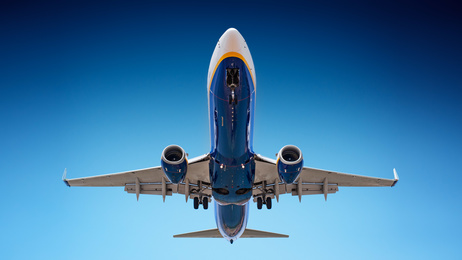Bravo For Having The Audacity To Ask Canadian Airlines To Compete

Federal Transport Minister Marc Garneau recently declared in an interview that he was not going to regulate the high prices of intra-Quebec flights through minimum or maximum price policies. He stipulated that “competition is what drives greater choice, more destinations and lower prices.”
It’s not the first time the minister demonstrated a sound understanding of the benefits of competition in addressing a public policy problem. In November 2016, he raised the foreign ownership limit for Canadian airlines in order to attract the capital required to fuel such competition. More access to foreign capital for Canadian airlines will lead, sooner or later, to more business creation and expansion in this sector. Customers can be expected to benefit the most from these policies through more choice, lower airfare and more innovation.
The quality of these decisions deserves some praise. They are great examples of how genuine competition benefits companies, workers and customers — audacious policies aimed at the air travel sector that don’t cost taxpayers a dime. Bravo!
Competition is a cornerstone of economic science, which clearly shows that entrepreneurship, innovation and consumer welfare all benefit from an open market and a light regulatory touch, which is to say less government intervention in the economy. The more that the laws of a country, of a province or state, or of a metropolitan area leave economic choices in the hands of individuals instead of submitting them to the political process, the more entrepreneurial projects there will be and the more these projects will be productive.
Unfortunately, the most common type of intervention for stimulating industries is subsidization and financial assistance in one form or another. One need only think of the participation of Investissement Québec in Bombardier, but the same bureaucracy also boasts that there are 440 other government subsidy and loan programs for entrepreneurs. Worse, the 2018 Quebec Grants Yearbook states that there are 2,000 programs available to help entrepreneurs.
Another way government has been trying to stimulate competition is through “fake,” managed competition in the telecom industry. Instead of relying on genuine competition, where the companies that best serve consumers are rewarded with their patronage, the government and the CRTC allow small internet service providers and cell phone providers to use the networks of larger ones at regulated rates to compete with them. They also set aside portions of spectrum at auction specifically for small players. All such policies are contrary to genuine competition, which requires a level playing field.
In contrast, market competition among airlines will work in favour of consumers, while allowing all companies more flexibility. The same insight should also be applied to the case of supply management in the dairy, poultry and egg sectors. Instead of allowing prices to fluctuate and producers to compete to better satisfy the consumer, these sectors rely on a system of managed prices, quotas and protectionism.
Price regulations and managed competition, either directly or indirectly through subsidies and loans, are the exact opposite of genuine competition, and generally favour a small set of producers at the expense of everyone else.
The ministers in charge of these industries should follow Mr. Garneau’s lead. Let’s hope that he takes the next logical step and reduces unnecessarily burdensome taxes and regulations that help keep ticket prices high. If we really want to encourage cheap flights, industry growth and consumer welfare in airlines, the transport minister’s way is definitely the best policy. Other members of government should take note, and refocus their policies around the concept of real competition, too, at home and abroad.
Mathieu Bédard is Economist at the Montreal Economic Institute. The views reflected in this op-ed are his own.
____________________
Read more articles on the themes of Liberalization of Markets and Regulations.

